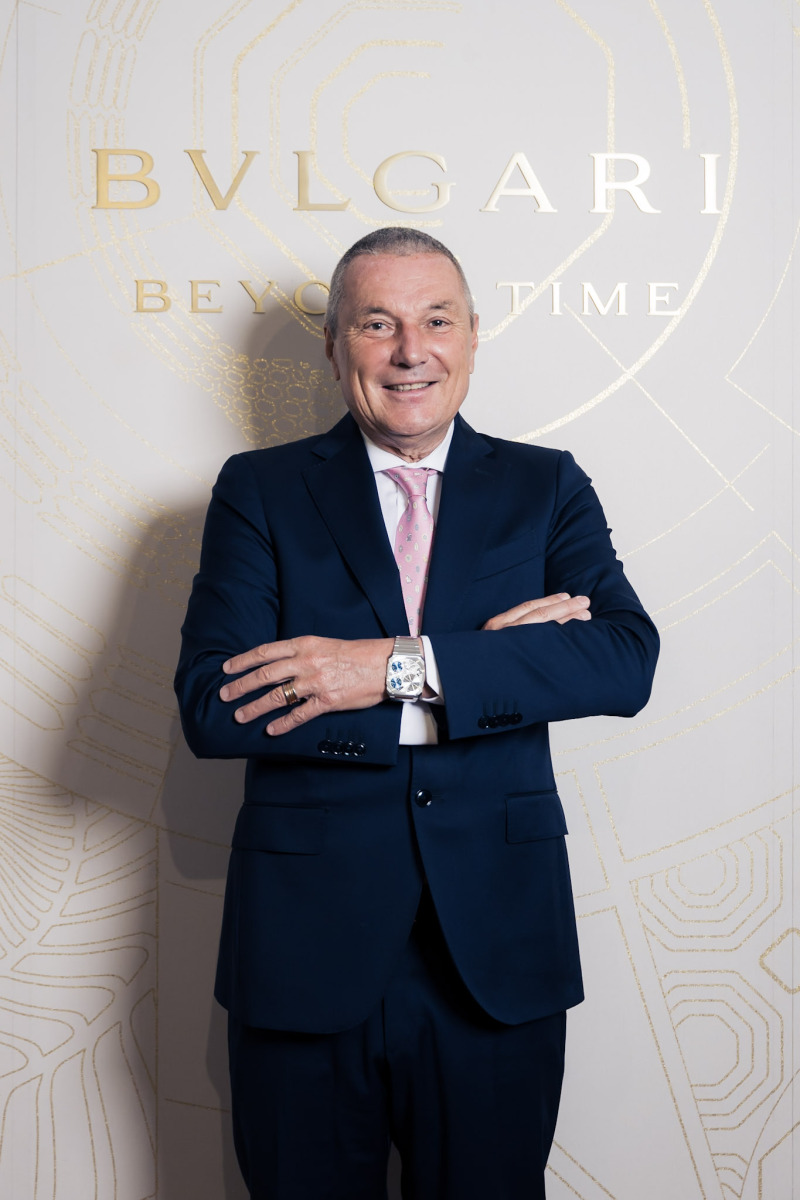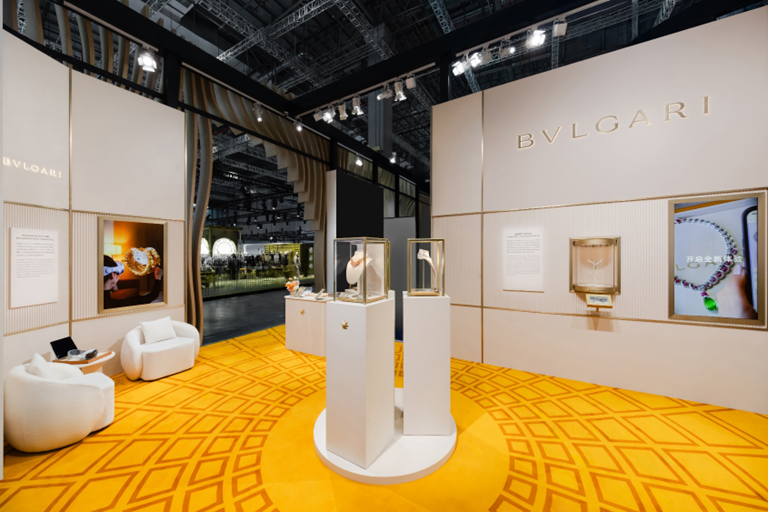“I think China is the market whereby we need to commit and continue on committing because there’s no substitution.” Mauro di Roberto, President of Bulgari Greater China, expressed firm confidence in the Chinese market in an exclusive interview with Luxe.CO.
Amid a slowdown in traffic across the luxury industry, Mauro di Roberto sees this as a sign that “the market is cleaning itself.” He emphasized, “I still believe China is the most important market for luxury in the future.”
A veteran with 46 years of experience at Bulgari and three decades in the Asian market, Mauro di Roberto officially assumed the role of President of Greater China six months ago. On the occasion of Bulgari’s fifth partnership with the Shanghai International Film Festival, he spoke with us in Shanghai, sharing his insights into the Chinese market and his locally focused strategies since taking office.
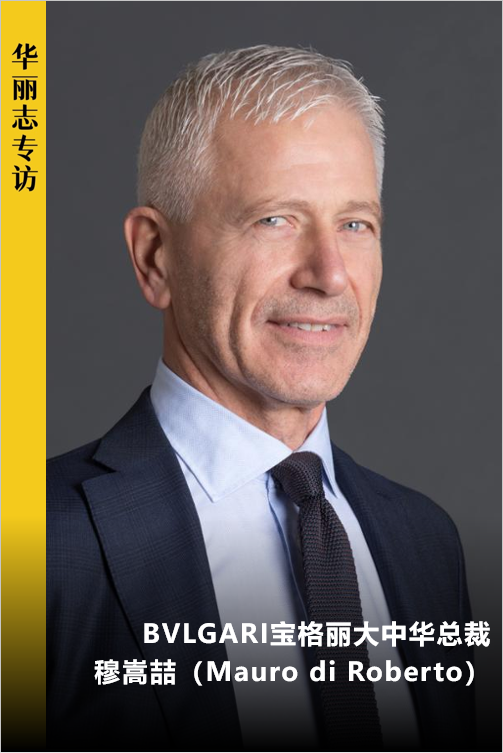
“I think China is the market whereby we need to commit and continue on committing because there’s no substitution.”
In recent luxury industry forums and reports, views such as “China is no longer the core battlefield” have become increasingly common. In response, Matteo Lunelli, Chairman of Italy’s luxury industry association Fondazione Altagamma, warned at the recent Altagamma 2025 Annual Summit: “Even if growth slows, ties with the Chinese market must not be severed!”
In fact, Luxe.CO has observed that luxury brands have not scaled back their investments in the Chinese market this year. Taking Bulgari as an example, following the global premiere of the Serpenti Infinito, a special Lunar New Year exhibition in Shanghai this January, the brand has once again launched a major documentary, ICON(S) BVLGARI BY REFIK ANADOL, in Shanghai during this year’s film festival.
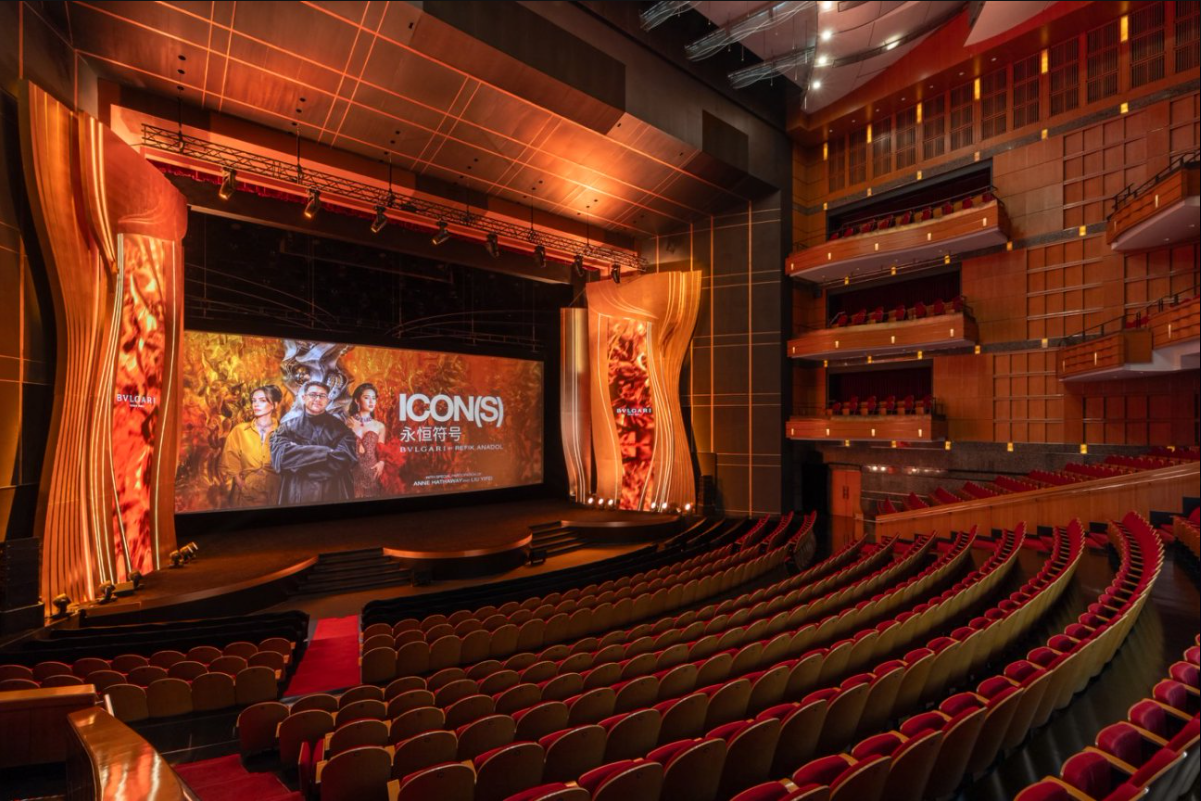
ICON(S) BVLGARI BY REFIK ANADOL
Speaking on the strategic importance of the Chinese market to Bulgari, Mauro di Roberto expressed a clear stance: “China is a market we must commit to and continue committing to, because there is no substitution.” He disagrees with the notion that the decline in traffic signals a market downturn, instead calling it a sign of “industry evolution.”
When asked whether emerging markets might replace China’s role in the global luxury landscape, Mauro di Roberto remained confident in the vitality represented by China’s rising middle class, stating: “From both an industry and economic point of view, there’s no doubt that China is the market of the future.”
Luxe.CO: What is your view on the strategic significance of the Chinese market to luxury brands?
Mauro di Roberto: I still believe that China is one of the most important markets for luxury in the future. We are currently going through a critical moment. You could say this (slowdown) has lasted nearly two years since the second half of 2023, and the market has noticeably decelerated. But I am quite confident in the future outlook of the luxury industry. It’s almost as if the industry is going through an evolution. Although traffic has dropped significantly, to me, that means the market is cleaning itself up.
Looking ahead to the Chinese luxury market, for various reasons, I believe there’s still a long road ahead. Today, the middle class in China is still growing. Whether from an industry point of view or from an economic perspective, I’m convinced that China is undoubtedly the market of the future.
I think China is a market where we need to commit and continue committing, because it is irreplaceable. By the way, as an Italian, I believe that once Italians are told to take a certain road, they’ll do anything to get there, at all costs.
“We have a 100% local team working with us, but the mindset must change.”
With 30 years of experience in the Asian market, Mauro di Roberto has a deep understanding of the common challenges in brand management and client communication caused by cultural differences between the East and the West. This brings us back to a frequently asked question posed to international luxury brands: Can global headquarters truly grasp regional market trends and demands in a timely manner?
Recently, Stéphane Bianchi, Deputy CEO of Bulgari’s parent company LVMH Group, noted during a domestic industry conference in France that the group has observed “Chinese consumers showing increasing interest in local brands.” While he did not name specific brands, he said that “some Chinese local jewelry companies have already seen explosive growth in demand.”
In this interview, Mauro di Roberto responded to Luxe. CO’s question regarding how he views the challenge posed by Chinese local brands such as Chow Tai Fook and Lao Feng Xiang. He stated: “Local Chinese brands have used Chinese culture as their source of inspiration in terms of creativity, and Chinese manufacturing. I do believe, generally speaking, that Chinese pride will help Chinese brands grow. And I don’t believe that we, as jewelers, can compete. Well, I mean, I don’t think Chinese clients want us to do something inspired by Chinese culture. From a product standpoint, they do not directly compete with Bulgari, which is rooted in Italian DNA.”
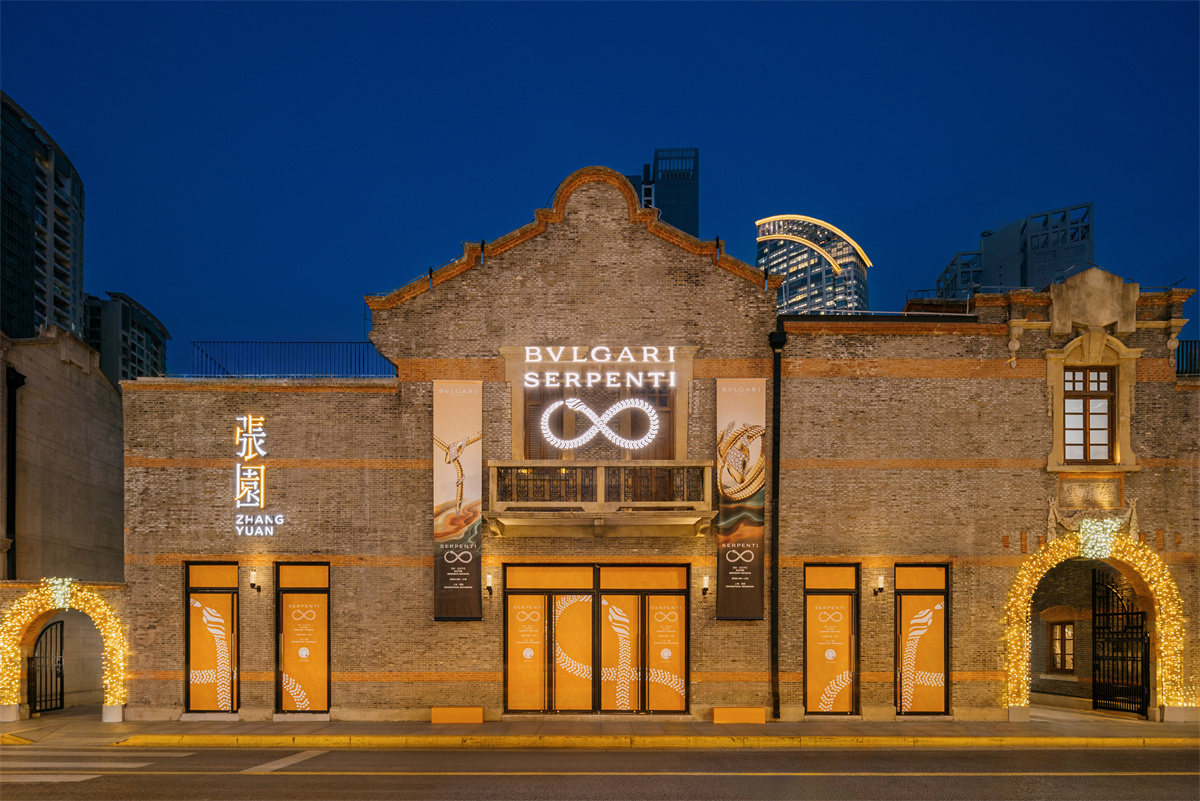
Bulgari “Serpenti Infinito” Lunar New Year Serpent Exhibition
He added, “The real challenge lies in how the brand manages its relationship with the Chinese client, from a mindset and cultural perspective. It may sound strange, because we have a 100% local team working with us, but the mindset must change.”
Since entering the Chinese market in the early 2000s, Bulgari has spent over 20 years optimizing its local customer service. This month, it officially launched an integrated after-sales service center in the Hainan Free Trade Port—its second such center in China, after the one in Shanghai. Mauro di Roberto said, “This is of great importance for the group’s future service expansion in the Asia-Pacific market.”
Luxe.CO: What are Bulgari’s current priorities in the Chinese market?
Mauro di Roberto: I once heard a podcast by a young Harvard graduate who said the West’s problem is how it looks at China. They need to be in China to look at China.
I believe what’s most important today is making the most of the opportunity to build relationships with Chinese clients. I place great value on elevating the brand image and what we stand for. If we want to be consistent in this and deliver matching service, we need to manage the client properly.
How do we maintain consistency in our brand storytelling when speaking to local clients? I think that’s a priority. It’s not easy. It requires long-term, continuous effort. From a management perspective, it’s a more strategic challenge.
Luxe.CO: You’ve been involved in managing the Asian market for 30 years. How has Bulgari influenced you personally?
Mauro di Roberto: My experience at Bulgari has grown in parallel with the company. I had the opportunity to take part in the core work that drove its development.
That has been the most motivating part for me, both professionally and personally. I’ve never regretted it.
I say that because I’m someone who loves what they do and loves the environment they work in. I believe I made a wise choice, and I have no reservations about anything I’ve done.
“A high jewelry brand should go beyond the product itself.”
In January this year, Bain & Company and Italian luxury industry association Altagamma jointly released their annual luxury report, stating that jewelry is the most resilient core luxury category in 2024. Driven by the high jewelry segment, total sales reached €31 billion (at current exchange rates), maintaining single-digit growth.
As one of the leading brands in the global high jewelry market, Bulgari was praised by LVMH Group Chairman and CEO Bernard Arnault during the 2024 fiscal year for achieving “great results.”
In response, Mauro di Roberto, who served as Head of Bulgari’s Jewelry Division and Managing Director of Jewelry (2001–2024), shared his definition of a high jewelry brand with Luxe.CO: “A high jewelry brand should go beyond the product itself. It should represent the pinnacle of luxury — at least, that’s the goal we should aim for.”
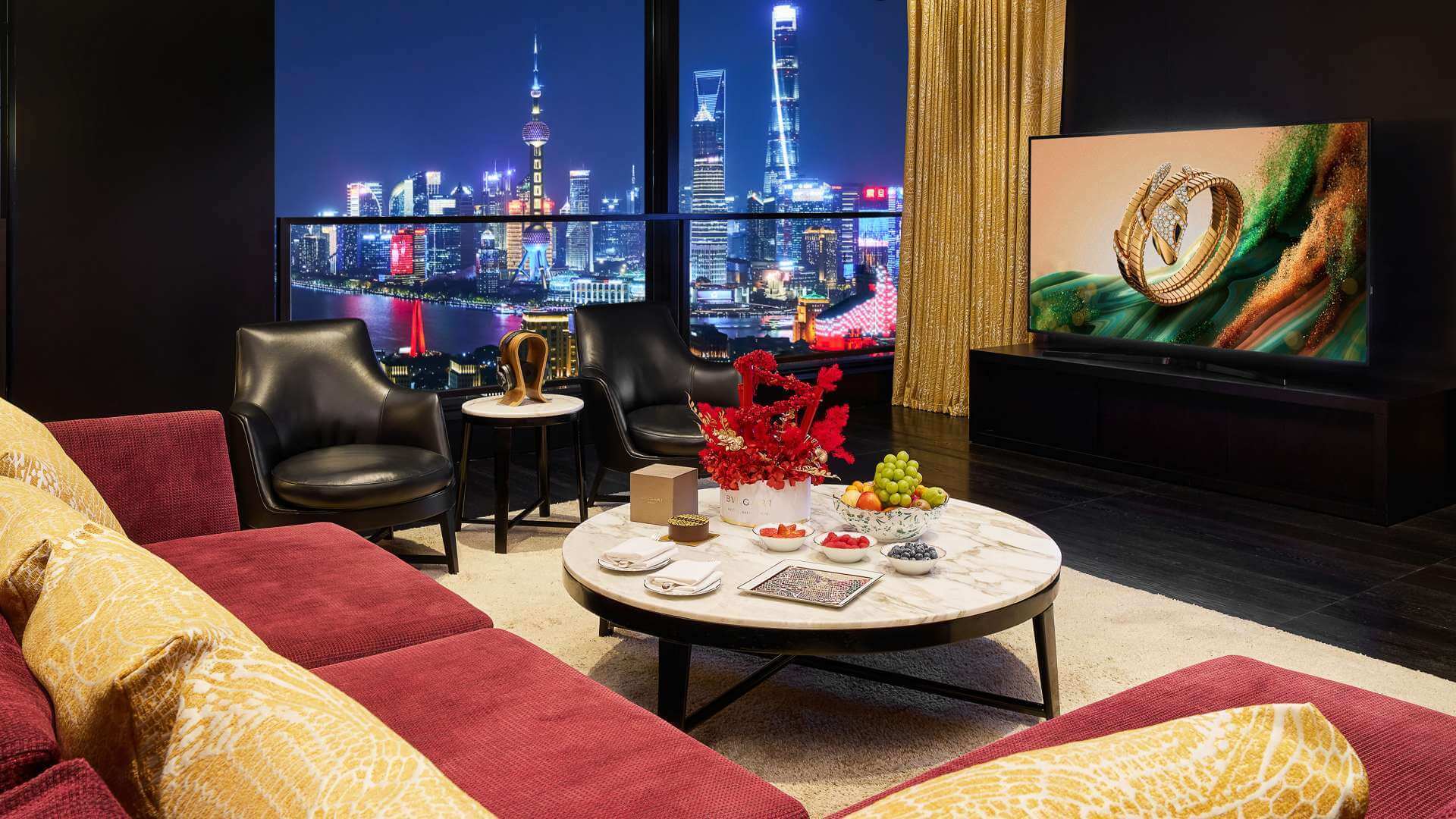
Bulgari Hotels & Resorts launches Serpenti Suite
Luxe.CO: Beyond jewelry, which product categories do you see as having growth potential for Bulgari in the Chinese market?
Mauro di Roberto: Watches are an important category, and honestly, we should be doing better. Currently, we’re still at an early stage in the watch industry. Historically, we were a jewelry-watch designer brand.
But in the past 15 years, we’ve done an excellent job transforming ourselves. Today, we hold a solid position in high-end watch movement manufacturing. That said, our watch business in China is still very small.
Compared to the core jewelry segment, we must set clear priorities — jewelry and certain aspects of the watch business should take precedence. In particular, ladies’ watches are closely linked to jewelry, which gives us a natural advantage. Men’s watches are more challenging, as we face very strong competitors in that space.
Luxe.CO: How do you view the way Bulgari’s success in hospitality and services contributes back to jewelry sales?
Mauro di Roberto: I think hospitality is a fantastic opportunity, one that we should use more effectively and bring even greater value from. Bulgari is the only luxury consumer brand with such an extensive hotel footprint. We need to build stronger bonds with clients to co-create exceptional experiences. The product alone is no longer enough, and our approach to communication also needs to evolve.
“The birth and rebirth of icons requires the courage to go beyond imagination.”
Like high jewelry, cinema is also an “art of time”. Since the 1950s, Bulgari has shared a deep connection with the world of film. Rome’s Cinecittà Studios, often referred to as “Hollywood on the Tiber,” gave birth to cinematic classics such as Cleopatra, Roman Holiday, and La Dolce Vita, while frequently featuring Bulgari’s creations on screen. This earned the brand the reputation as “the jewel box of the stars.”
This year marks the 130th anniversary of world cinema, the 120th anniversary of Chinese cinema, and the 55th anniversary of diplomatic relations between China and Italy.
As an official partner, Bulgari is actively participating in the 27th Shanghai International Film Festival, where it also debuted its new brand-produced documentary ICON(S) BVLGARI BY REFIK ANADOL.
ICON(S) BVLGARI BY REFIK ANADOL
Produced in collaboration with Terminal 9 Studios, the film documents the creative journey of globally renowned digital artist Refik Anadol, whose sculptural work Infinito: AI Data Sculpture was inspired by Bulgari’s iconic Serpenti motif.
The Serpenti totem, one of Bulgari’s most iconic symbols, transcends time and geography, evoking deep cultural resonance. Constantly evolving through changing eras, it remains an enduring inspiration. This is the central theme of the documentary: a reflection on what it means to be a true icon.
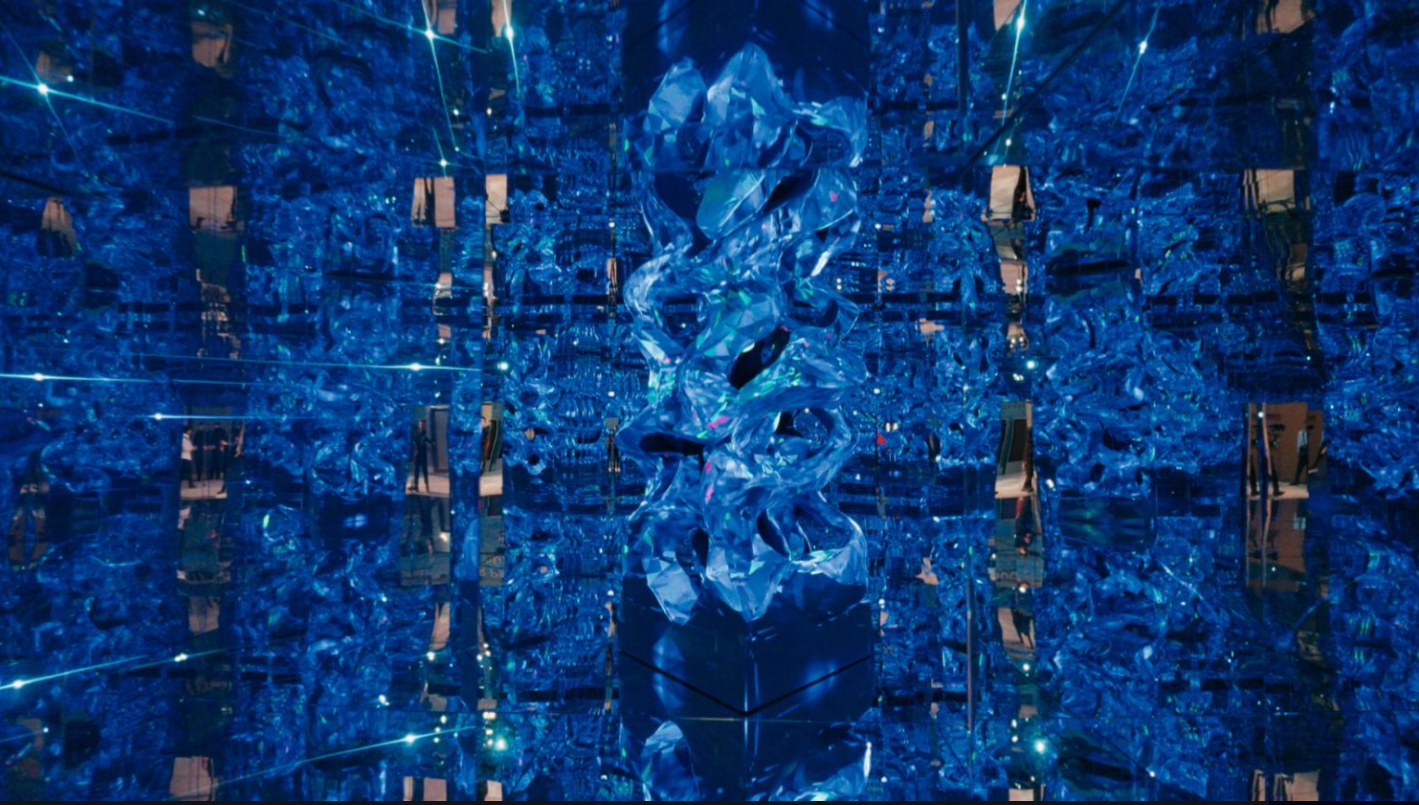
Refik Anadol, Infinito: AI Data Sculpture
Notably, ICON(S) is Bulgari’s third documentary, following Inside the Dream (2022) and The Emperor’s Jewel: The Birth of the Bulgari Hotel Rome (2024).
As Bulgari continues to explore new frontiers in creativity, technology, and storytelling, this latest film boldly declares:
The birth and rebirth of icons require the courage to go beyond imagination.
丨Image Credit: Bulgari
丨Editor: Elisa


